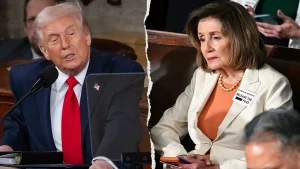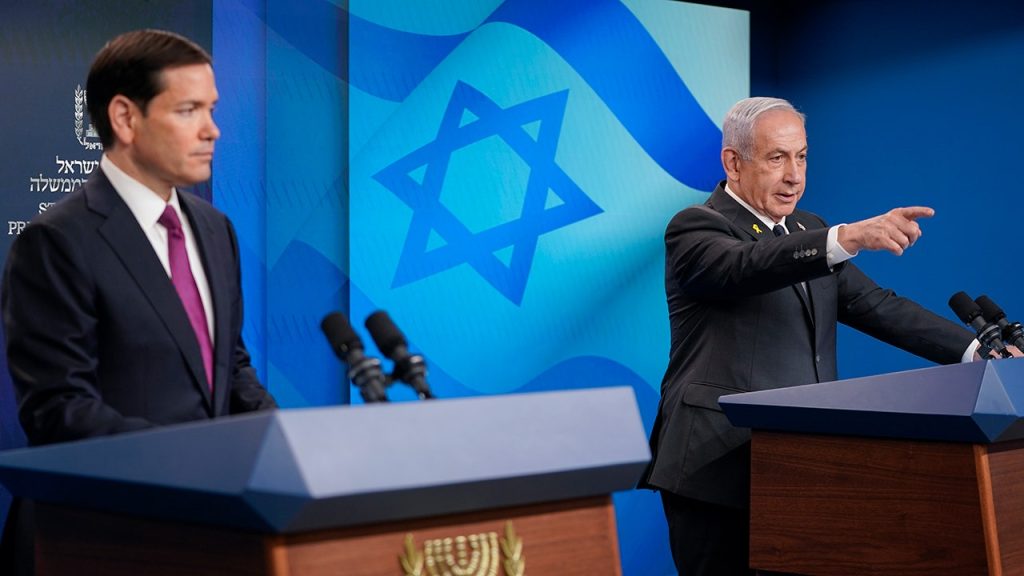The Impact of Charlie Kirk’s Assassination on Democracy and Political Discourse
In a somber joint press conference in Jerusalem, Secretary of State Marco Rubio and Israeli Prime Minister Benjamin Netanyahu addressed the shocking assassination of Charlie Kirk, describing it as not merely a political killing but an attack on democratic values worldwide. Speaking after their meeting about the ongoing Gaza conflict, both leaders emphasized how Kirk’s death represented a profound loss that extended beyond politics into the personal realm for many in the White House. Rubio described the assassination as “horrifying” and noted that for President Donald Trump and Vice President JD Vance, who maintained close relationships with Kirk, the event felt like “a death in the family.” This personal connection underscores the human dimension of political violence, reminding us that behind public figures are real people with meaningful relationships and communities that mourn their loss.
The assassination occurred during a debate at Utah Valley University at a Turning Point USA event, cutting short the life of someone who had dedicated his career to engaging with opposing viewpoints across college campuses and online platforms. This context makes the killing particularly disturbing, as Kirk was actively participating in precisely the kind of civil discourse that forms the foundation of democratic society. Both leaders expressed grave concern about what this means for free speech and open debate in America and globally. The tragedy highlights the growing challenge of maintaining spaces for respectful disagreement in an increasingly polarized world where some individuals resort to violence rather than engaging with ideas they oppose.
Rubio articulated a crucial insight during the press conference, noting that “once a society loses the ability of people with strong disagreements to engage in discourse, then the only option you’re left with is either silence or violence.” This observation captures the essential dilemma facing democracies today – the erosion of shared forums for debate leaves dangerous voids that extremism can fill. When political differences become so entrenched that opponents are viewed as enemies rather than fellow citizens with different perspectives, the fundamental mechanisms of democratic governance begin to break down. Kirk’s assassination represents this breakdown in its most extreme and tragic form, demonstrating how political violence seeks to short-circuit the democratic process by eliminating voices rather than engaging with them.
Netanyahu framed the issue as a fundamental challenge to democracy itself, asking rhetorically how democratic societies should address “the threat of the poisonous incitement of the people who don’t believe in free speech, who believe in the imposition of their views on others.” His question touches on the paradox democracies face when dealing with anti-democratic forces – how to defend open discourse while protecting against those who would exploit these freedoms to undermine them. The Israeli Prime Minister defined democracy elegantly as “the nonviolent resolution of conflict within a society,” emphasizing that in functioning democracies, “decisions are made not by bullets, but by ballots.” This distinction highlights what’s at stake when political assassinations occur – they represent a direct assault on the core principle that disagreements should be resolved through civic processes rather than violence.
The FBI’s involvement in investigating potential connections between leftist groups and Kirk’s assassination, as mentioned in the report, adds another dimension to this tragedy. While the investigation is ongoing and conclusions should not be prematurely drawn, the possibility that organized political factions might be connected to such violence raises alarming questions about the state of American political discourse. As Senator John Fetterman’s call for Democrats to stop using extreme rhetoric against Trump suggests, there’s growing recognition across the political spectrum that inflammatory language can contribute to a climate where violence becomes more likely. This represents a potential moment for reflection on how political communication affects civic health and the boundaries of responsible rhetoric in a deeply divided nation.
Kirk’s assassination serves as a sobering reminder that democracy remains fragile even in nations with long democratic traditions. The ability to disagree peacefully, to debate vigorously without demonizing opponents, and to accept electoral outcomes even when disappointed are not guaranteed but must be continuously reinforced through civic commitment and institutional safeguards. As Rubio and Netanyahu’s comments suggest, this tragedy transcends partisan divides and national boundaries – it represents a warning about the universal dangers of political extremism and the vital importance of preserving democratic norms of discourse. In Kirk’s memory, citizens and leaders alike might consider how to strengthen these norms and rebuild the capacity for constructive disagreement that sustains democratic governance through inevitable conflicts and challenges.















